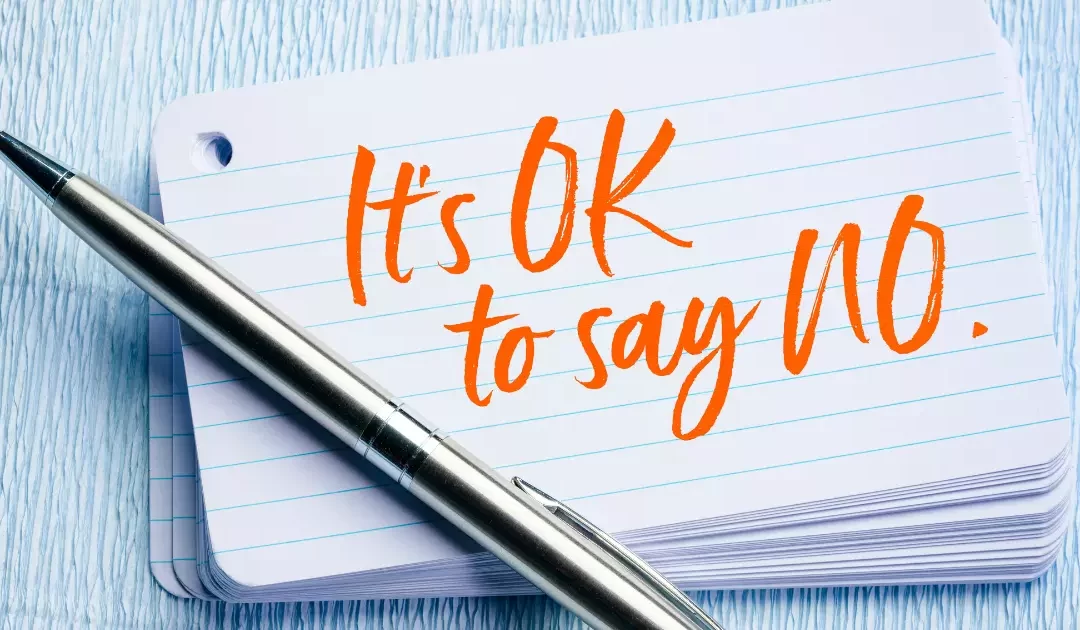If you’ve ever said “yes” when you wanted to say “no,” you’re not alone. Whether it’s out of habit, fear of disappointing others, or just trying to be kind, many of us struggle with setting boundaries — even when it comes at the expense of our own well-being.
But here’s the truth: saying “no” doesn’t make you rude, selfish, or difficult. It makes you human. And it means you’re honoring your limits — something that’s essential for emotional health and balanced relationships.
Why Saying “No” Feels So Uncomfortable
There are so many reasons it can feel hard to say no. Maybe you were taught that good people always help when asked. Or maybe you’re afraid someone will be hurt, angry, or think less of you. It makes sense — you care about others and want to maintain harmony.
But if saying yes too often leaves you feeling stretched thin, resentful, or exhausted, it might be time to look at “no” not as a rejection, but as a way to stay aligned with what you truly have capacity for.
How to Say No — Kindly and Clearly
You don’t have to explain everything or over-apologize. In fact, “no” can be loving, respectful, and still firm. Here are a few ways to practice:
1. Keep it Simple
You don’t owe long explanations. A gentle but direct response often works best:
- “I really appreciate you asking, but I won’t be able to.”
- “Thanks for thinking of me. I have to pass this time.”
2. Give Yourself Permission
It’s okay to pause before answering. You’re allowed to check in with yourself. Try saying:
- “Let me think about that and get back to you.”
This gives you space to respond from intention, not pressure.
3. Use “No” as a Boundary, Not a Wall
You’re not shutting people out — you’re choosing what’s sustainable for you. That’s not rejection; it’s a form of self-respect.
4. Notice What Comes Up
If guilt shows up, that’s normal. Guilt often comes from caring — but caring for others doesn’t mean abandoning yourself. Over time, that guilt will quiet as you see the peace that comes from honoring your own needs.
Saying No Creates Space for What Matters
When you say no to something that doesn’t serve you, you’re saying yes to rest, clarity, and the relationships or work that truly matter. You’re making room for joy, presence, and well-being.
It’s not easy at first. But you deserve to take up space, protect your energy, and speak your truth — gently, firmly, and with love.
You Can Practice This
If you’re someone who feels guilty saying no, you’re probably also someone with a big heart. And learning to set boundaries doesn’t make your heart smaller — it actually helps it be more aligned with the things you care about most.
You can start small. Practice with safe people. Write it down. Say it out loud. Bit by bit, it gets easier. And you’re not doing it alone.
Final Thoughts
Learning to say no is a skill that can be developed with practice and self-compassion. By implementing these strategies, you can set healthy boundaries without feeling guilty, leading to a more balanced and fulfilling life.
If you’re interested in more resources on setting boundaries and personal development, feel free to explore our other articles or contact us for personalized guidance.




Recent Comments